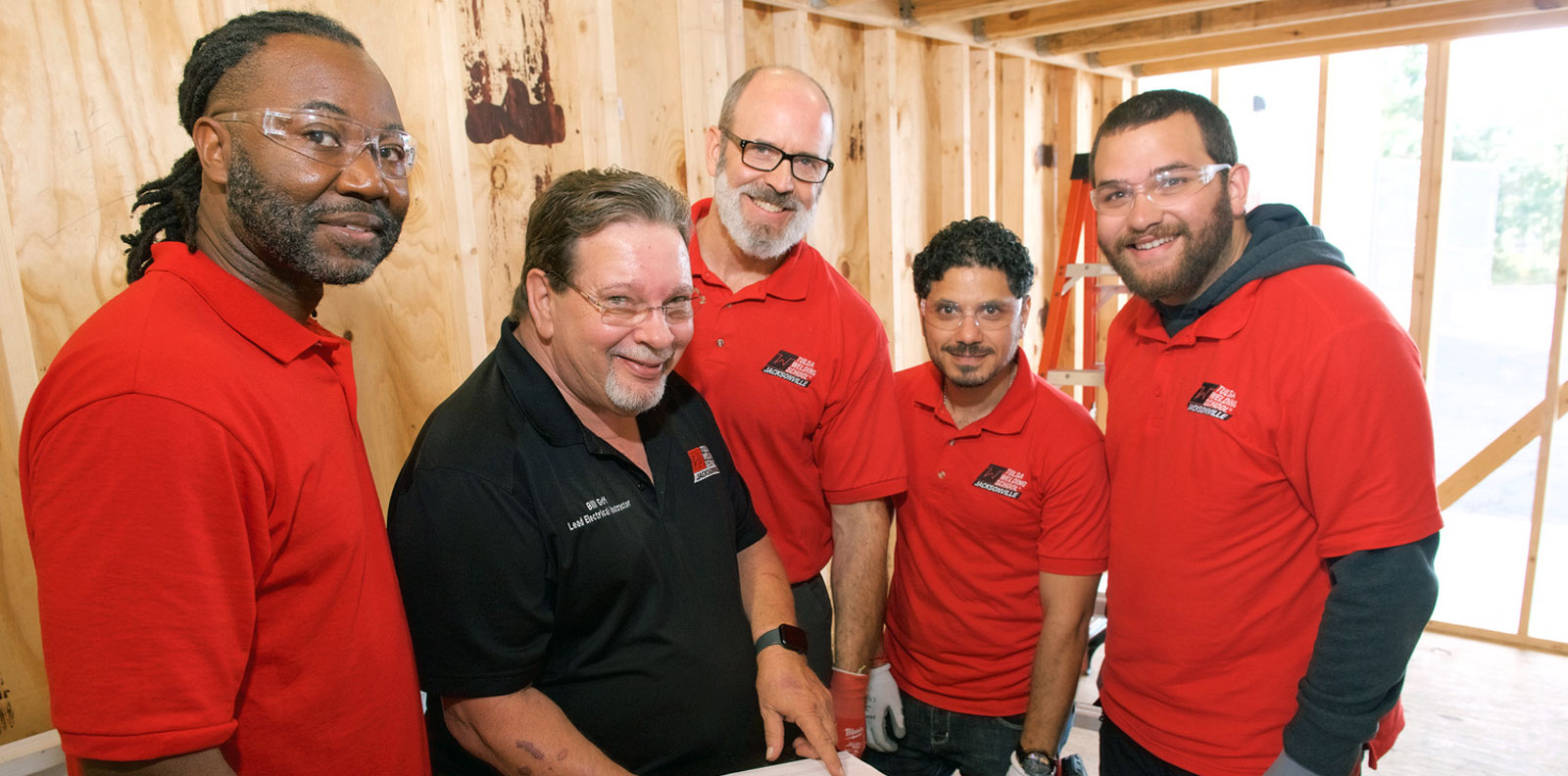TWS is a Great Training Option for Everyone
Learn more about how we can prepare you to advance your career.
If you are interested in becoming an electrician, it’s helpful to know the different levels in the trade. Each electrician level comes with additional skills, a different license, higher potential salary and more responsibilities.
Electrician Experience Levels Defined:
As you progress through your career you will move up through different levels in the electrical industry. There are three primary electrician levels tied to experience; they include apprentice, journeyman and master.
Electrician’s Apprentice
This is how you’ll start out your career as an electrician. Before you can work independently on electrical systems, you’ll first prove yourself through hands-on training in the classroom and practical experience on job sites under the guidance of experienced electricians. This combination of education and real-world training ensures that you build a solid foundation of knowledge and skills. By the time you’re ready to work independently, you’ll have the confidence, competence, and understanding necessary to safely and effectively handle electrical projects on your own.
Completing the 7-month Electrical Applications training at Tulsa Welding School can give you a significant head start, but you’ll still typically need an apprenticeship to become fully licensed and able to work independently as a professional electrician.
Have You Considered a Career in the Skilled Trades?
Fill out the form to recieve a no obligation info packet.
Journeyman Electrician
To become a journeyman electrician, you must complete either 4 years of work experience or 3 years of work experience and graduate the Electrical Applications or Electrical Technologies programs at TWS. Attending a trade school often provides a broader knowledge base and can take on more responsibilities.
By completing an Electrical program at TWS, you get a complete curriculum and won’t get pigeonholed into one aspect of the electrical industry. You can work in either residential or commercial electrical systems and use the same industry standard equipment that you will use on the job. Plus, you get hundreds of hours of hands-on training while strictly supervised by a TWS instructor. You get the opportunity to try different tasks and make mistakes without catastrophic consequences.
The final step in becoming a journeyman electrician is to get a license the requirements of which can vary by State. For instance:
- In Oklahoma, the Construction Industries Board (CIB)1 oversees the licensing and regulation of electricians. The CIB issues the different levels of electrical licenses, including those for apprentices, journeymen, and contractors. Each license type has specific requirements and qualifications.
- In Texas, the Texas Department of Licensing and Regulation (TDLR)2 oversees the licensing and regulations of electricians. Electrical professionals must meet the necessary standards to operate safely to become journeyman or master electricians.
- In Florida, the Electrical Contractors’ Licensing Board (ECLB)3 oversees the licensing and regulation of electrical contractors. This board operates under the Florida Department of Business and Professional Regulation (DBPR).
Master Electrician
The highest-level electrician is the master electrician and is designated by a license. To get a Master Electrician license you must complete two to four years of work experience as a licensed journeyman electrician and then apply for the master electrician’s license. You will again submit your license application to the board that oversees electricians in your state, as well as take and pass the master electrician exam. The test covers advanced topics like electrical system design, code requirements and safety standards. To keep your Master Electrician license current, you will need to complete some sort of continuing education.
Want to Learn More?
At Tulsa Welding School, we are dedicated to helping you change your life and leading you to lifetime fulfillment and success. In addition to our supportive faculty and staff, our hands-on training programs are created with feedback from companies that employ skilled trades professionals. We train you in the types of skills that employers look for in a worker.
To learn more about our Electrical Applications or Electrical Technologies programs, contact us online today.







